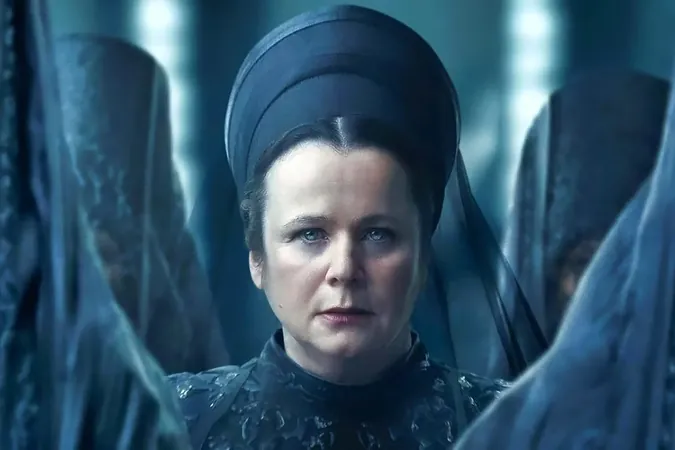
HBO's Dune: Prophecy - Can It Rise to Game of Thrones' Heights? Here’s What You Need to Know!
2024-11-17
Author: Wai
As HBO embarks on its ambitious project with "Dune: Prophecy," the stakes are high. Denis Villeneuve's cinematic rendition of Frank Herbert’s legendary series left viewers at the edge of their seats, but also raised intriguing questions stemming from the first installment. The story about Paul Atreides, played by Timothée Chalamet, concluded with a messianic vision of leadership, glossing over the chilling totalitarianism that unfolds in the sequels—quite like telling the rise of a dictator without revealing the ensuing horrors.
"Dune: Prophecy" is set a staggering century after humanity's devastating war against thinking machines, and yet Paul Atreides has yet to be born. Instead, the series zeroes in on the manipulative machinations of the Bene Gesserit sisterhood, portrayed by Emily Watson’s character, Valya Harkonnen, who fervently attempts to impose their will on the universe. With the Harkonnens historically opposed to House Atreides, Valya’s calculated plans hint at dark twists awaiting the future.
Unlike the valorous rebels of the Dune films, the characters in "Dune: Prophecy" are driven by self-preservation rather than noble aspirations. Valya's backstory is chilling, as a young Valya instills fear into rivals with a deadly action, revealing how ruthlessness is entrenched in their culture. The series opens with a shocking flashback that sets the tone for the characters’ amoral ambitions—a precursor to larger intrigues.
Parallel to the scheming of the Bene Gesserit is the precarious situation on the planet Salusa Secundus. Plans laid out by Emperor Javicco Corrino (Mark Strong) concerning his daughter's marriage intertwine with the looming shadow of war as Desmond Hart (Travis Fimmel) emerges from his terrifying encounter with a sandworm. His mystical transformation, gifted with powers of incineration, raises the stakes further and adds layers of complexity to the impending conflicts.
Challenged by production hurdles, "Dune: Prophecy" faces the daunting task of living up to its legendary predecessors. From losing the original showrunner to rebranding issues, the show has undergone significant changes. Despite its compelling premise, its brevity of six episodes risks undercutting the epic storytelling fans expect, especially in a universe as rich and expansive as Herbert's.
The first episode hints at an ensemble cast, detailed character developments, and underlying mysteries, yet it quickly shifts focus to the central clash between Valya and Desmond. Critics have pointed out that while the stakes seem enormous, the absence of ordinary perspectives makes the narrative feel detached, reducing the emotional weight of the power struggles at play.
As the narratives of power, manipulation, and revenge unfurl, one is left to ponder: Who truly holds the moral high ground in the war of ideologies depicted? As fans of fantasy and sci-fi gaze upon this intriguing landscape, we can't help but wonder if HBO can craft a saga that intertwines grandeur with a strong emotional core—a formula that propelled "Game of Thrones" to global acclaim.
"Dune: Prophecy" holds potential for an expansive journey through betrayal and power reminiscent of classic narratives. For now, fans await its full unveiling, hoping it will deliver a story that resonates beyond the stars and into the hearts of its audience. Will it rise to the occasion and forge its own path amidst comparisons to fantasy legends? Only time will tell!

 Brasil (PT)
Brasil (PT)
 Canada (EN)
Canada (EN)
 Chile (ES)
Chile (ES)
 España (ES)
España (ES)
 France (FR)
France (FR)
 Hong Kong (EN)
Hong Kong (EN)
 Italia (IT)
Italia (IT)
 日本 (JA)
日本 (JA)
 Magyarország (HU)
Magyarország (HU)
 Norge (NO)
Norge (NO)
 Polska (PL)
Polska (PL)
 Schweiz (DE)
Schweiz (DE)
 Singapore (EN)
Singapore (EN)
 Sverige (SV)
Sverige (SV)
 Suomi (FI)
Suomi (FI)
 Türkiye (TR)
Türkiye (TR)